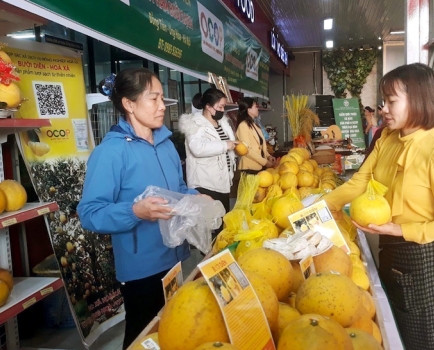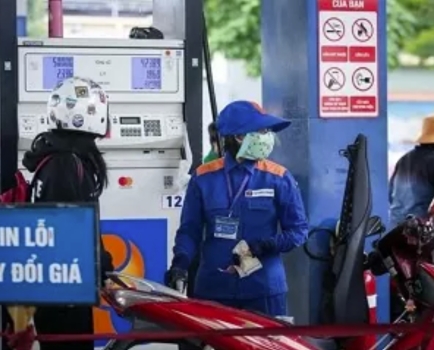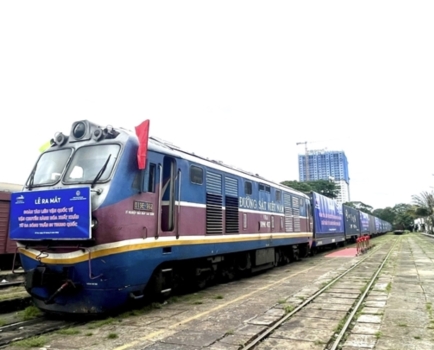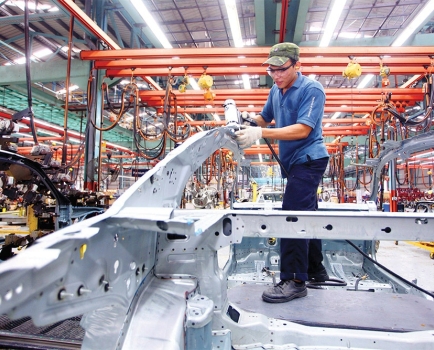Vietnam urged to fulfill labour commitments in implementing FTAs
Sun, 23 Jun 2019 17:40:00 | Print | Email Share:
VOV.VN - Vietnam has made significant advancements towards ratifying the International Labour Organization’s fundamental conventions and revising the Labour Code in preparation for the signing and ratification of the EU-Vietnam free trade agreement, according to the European Commission.
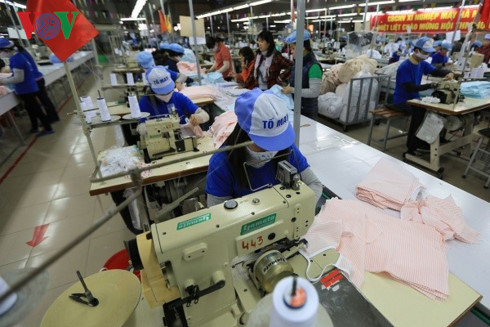
Vietnam has made significant advancements towards ratifying the ILO’s fundamental
conventions and making amendments to the Labour Code
The European Commission (EC) emphasised that the labour-related chapter of the agreement has played an important role in making the EU-Vietnam free trade agreement (EVFTA) a reality.
Since joining the World Trade Organization 10 years ago, the nation has taken part in and finalised a total of 12 bilateral and multilateral Free Trade Agreements (FTAs).
The country has been on the verge of comprehensive integration as the signing of a series of FTAs has created a window of opportunity for co-operation in terms of capital and effective modern management methods for local businesses.
Despite these positives, economists warned that businesses should pay close attention to labour commitments under the FTAs, particularly new-generation FTAs to avoid affecting export activities.
In the 2016-2020 period, under the FTA commitment roadmap, the country is set to enjoy substantial tariff reductions whilst tariff lines will be slashed to zero per cent. This offers plenty of opportunities for businesses to develop their production and business activities.
Experts have warned businesses about the unpredictable impacts that may occur from FTAs, which could affect the consumer market.
Under labour commitments, if a nation maintains either low labour standards, wages, or working conditions which have not previously been established based on negotiations, then that nation would enjoy lower production costs. This would therefore lead to unfair competition as those which employ cheap labour rights would made larger profits than nations which follow high labour standards.
Nguyen Thi Thu Trang, Director of the WTO Integration Centre under the Vietnam Chamber of Commerce and Industry, said both the CPTPP and EVFTA stipulate that the participating parties should follow labour rights such as freedom of association, collective bargaining, the elimination of compulsory labour, an abolition of child labour, and elimination of discrimination with regard to employment and occupation.
She elaborated that businesses, especially those in the garment and textile sector which utilise massive amounts of labour, should target the issues now in order to avoid unexpected risks occurring in the future.
The use of child labour in the supply chain may not directly affect the implementation of commitments as FTA partners will not stop reducing tariffs for imports. However, if information on the use of child labour is spread throughout the target market, it is highly likely to lead consumers to reject the products, causing export businesses to suffer heavy losses and the consumption market to be narrowed, noted Ms Trang.
Nguyen Van Binh, deputy head of the Department of Legislation under the Ministry of Labour, Invalids and Social Affairs, said both the CPTPP and EVFTA have put forth labour commitments that businesses must avoid violating regulations in terms of gender equality including the elimination of discrimination against women, sexual harassment, pregnancy, and age.
Under the roadmap set out, domestic businesses will be forced to fulfill their obligations to labour commitments at an appropriate level suitable for the country before making gradual adjustments in the future.
According to the Ministry of Labour, Invalids and Social Affairs, the ministry has been co-ordinating with the Vietnam General Confederation of Labour (VGCL) since 2016 to consider the ratification of the remaining fundamental conventions of the International Labour Organization (ILO).
Both parties have received active technical support from the ILO and other partners including the EU. In addition, the ministry and the VGCL have made amendments to the Labour Code in compliance with international labour standards.
Currently, Vietnam participates in ILO conventions including the Rights to Organize and Collective Bargaining Convention (convention number 98), the Abolition of Forced Labour Convention (convention number 105), and the Freedom of Association and Protection of the Right to Organize Convention (convention number 87).
Deputy Minister of Labour, Invalids and Social Affairs Doan Mau Diep added that the nation has made significant advancements towards ratifying the ILO’s fundamental conventions and making amendments to the Labour Code, adding that these moves reflect the country’s goodwill and all-out efforts ahead of the signing and ratification of the EVFTA.
Both the CPTPP and EVTFA mention fundamental principles and rights at work. During a recent workshop on Labour Provisions in the EVFTA held in Hanoi, Ms Madelaine Tuininga, Head of Trade and Sustainable Development of the European Commission’s Directorate-General for Trade, expressed her pleasure at the constructive approach made by the Vietnamese government.
She noted that these efforts show Vietnam’s commitments to the FTA in areas regarding labour.
By: VOV
---------------------------------------------
Same category News :





